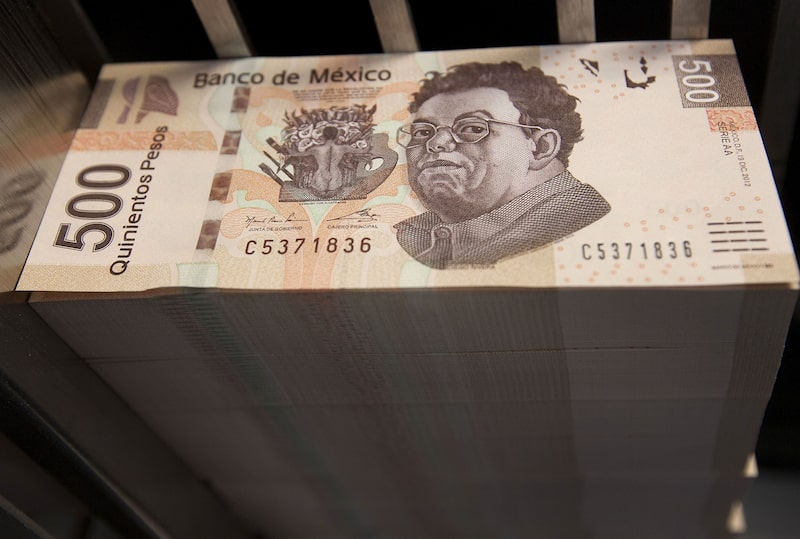Bloomberg Línea Ideas — “There is plenty of money to solve most of the world’s problems,” says none other than Abigail Disney, activist, documentary filmmaker and a member of Patriotic Millionaires in the prologue to Oxfam’s 2022 global report.
The report presents a collection of figures that starts with a stunning fact: Since the beginning of the pandemic, a new billionaire has emerged in the world every 26 hours.
Covid-19 had the capacity to double the fortunes of the 10 richest men in the world, while another 160 million people fell into poverty.
The solution to the yawning gap between extreme and scarce resources is proposed with the implementation of a progressive global fiscal model that gives governments greater access to resources, or a better distribution of national prosperity, to improve the basic services a country needs for a fairer society: education, health and security.
And what is happening in Mexico? The data provided by Oxfam Mexico mirrors the global trend:
- 15,215 Mexicans (0.01% of the Mexican population) possess wealth equivalent to 36% of Mexico’s GDP. This is even higher than the 1.2 trillion pesos ($58.6 billion) of the federal expenditure budget for fiscal year 2022.
- 655 individuals accumulate a fortune in excess of 5 trillion pesos, a figure very close to the total programmable spending of the federal government for 2022.
- As of November 30, 2021, there were 13,000 Mexican millionaires with a total wealth of 2.9 trillion pesos ($141.7 billion), and of which the top five are the usual suspects:
- Carlos Slim Helú, with 1.4 trillion pesos ($68.4 billion)
- Germán Larrea Mota Velasco, with 458 billion pesos ($22.3 billion)
- Ricardo Salinas Pliego, with 265 billion pesos ($12.9 billion)
- Alberto Baillères González, with 178 billion pesos ($8.7 billion)
- Juan Francisco Beckmann Vidal, with 148 billion pesos ($7.2 billion)
According to Oxfam Mexico’s calculations, an annual progressive tax on the wealth of individuals with more than 100 million pesos would raise 400 billion pesos ($19.5 billion), an amount sufficient to cover all of the Welfare Ministry’s current programs.
Mexico has little ‘cash’ to achieve fundamental changes in basic issues because it is one of the countries with the lowest tax collection, not only in Latin America but also in the OECD. Each year Mexico collects the equivalent of 13% of GDP, while Brazil collects 33%, Argentina 29% and Colombia 19%.
Not only is this not enough, but from the very beginning these revenues are already compromised: seven out of every 10 pesos of public revenues are used to cover expenses related to the payment of debt, pensions and transfers to states and municipalities.
As former OECD Secretary General José Ángel Gurría said recently, Mexico is condemned to being a country with ‘growth hormone’ problems.
“In Mexico, as we have a small income, we are condemned to continue having a small state, a small government,” Gurría said, and who is also a former finance minister of Mexico.
“According to the Economic Commission for Latin America and the Caribbean (ECLAC), mortality due to Covid-19 is higher in public hospitals than in private hospitals, and this shows the low investment of the Mexican state in healthcare, and the enormous inequality in the country.
“We believe that there should be a universal health system, not only with general coverage, but also one of quality. And that would require at least double what is spent now. But since there is no fiscal space, the first thing that needs to be done is a progressive fiscal reform,” according to Alexandra Haas, executive director of Oxfam Mexico.
For Oxfam, if a tax reform that also takes into account the demographic changes in Mexico is not carried out, future generations would have to pay six times more than current generations to receive the same public goods and services that they receive today, both in quantity and quality.
Undoubtedly, in tax matters, Mexico has not acted in accordance with its level of development. For decades, oil was the shock absorber and the savior for what was not collected from the rest of the Mexican economy.
A Robin Hood-like tax reform had already been proposed to the Mexican government in the 1960s by a Hungarian economist hired by the Treasury, Nicholas Kaldor.
His proposal was unsuccessful because it risked capital flight. Will Oxfam analysts or President Andrés Manuel López Obrador, who recently presented this idea as his own at the United Nations, take this detail into account?
Also Read:





